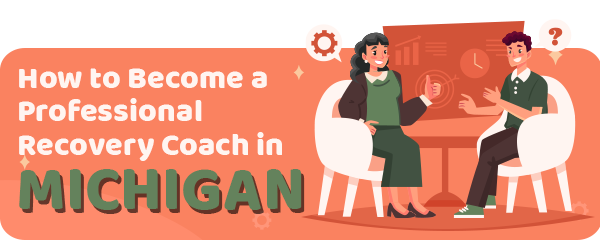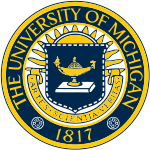Recovery coaches play a crucial role in providing essential non-clinical support to individuals striving to overcome addiction and achieve long-lasting recovery.
As a recovery coach in Michigan, your primary goal is to provide guidance and assistance to individuals undergoing addiction treatment.
This article aims to explore the field of recovery coaching, offering insights on how to pursue a rewarding career in this profession.
Article Table of Contents
Job Description of a Professional Recovery Coach in Michigan
The main focus of a recovery coach is to offer support and guidance to clients, helping them in their journey toward sustainable recovery.
Recovery coaches can work with individuals struggling with various forms of addiction.
The key responsibilities of a recovery coach include:
- Providing clients with education regarding vital life skills, including the maintenance of a healthy and well-rounded lifestyle through activities such as cooking and cleaning.
- Working together with clients to establish attainable objectives and create practical plans for achieving them.
- Regularly performing safety and wellness assessments to ensure the welfare of clients throughout their journey of recuperation.
- Tracking clients’ advancement and ensuring their responsibility for their actions and commitments.
- Enabling access to additional resources for recovery, such as support groups, counseling services, or vocational training, based on individual requirements.
- Protecting client confidentiality and adhering to HIPAA guidelines to preserve privacy and foster trust.
- Conducting meetings with clients and their families to offer comprehensive support and address any challenges or concerns that may arise.
Steps to Become a Professional Recovery Coach in Michigan
If you aspire to become a recovery coach in Michigan, here are the steps you have to follow.
1. Obtain a High School Diploma
To become a recovery coach, you need to finish high school and get a diploma.
If you can’t do that, you can get your GED as an alternative.
2. Gain Practical Experience
You will also need hands-on experience in order to get the required skills for the job.
This can be done by volunteering at recovery centers and related organizations located in your area.
3. Get certification
There are several ways in which you can get a recovery coach certification in Michigan.
You can choose to become a Peer Recovery Mentor (PRM) or a Certified Peer Recovery Coach (PRC).
To be a PRM, you need:
- 20 hours of recovery coach training
- Take a criminal background check
- A minimum of 24 months of sobriety
- Fill out the MCBAP PRM application and submit the required fee
For the PRC certification, you need:
- 40 hours of recovery coach training
- Take a criminal background check
- A minimum of 24 months of sobriety
- Fill out the MCBAP PRC application and submit the required fee
4. Maintain Sobriety
In Michigan, it is a prerequisite to have completed at least 2 years of sobriety in order to pursue a career as a recovery coach.
This requirement ensures individuals have firsthand experience in overcoming addiction before taking on the responsibility of helping others.
Receiving recommendations from professionals in the industry can greatly enhance your credibility as a recovery coach.
Training and Education Opportunities in Michigan
Training for future professional recovery coaches is available through a variety of institutions.
Central Michigan University 
The university offers an MA in counseling that has a duration of about 3 years.
The program can be attended part-time or full-time, in-person or online.
At the end of the program, students will be qualified to take the licensing exam for Professional Counselor (LPC) in Michigan.
University of Michigan 
Here, those interested will apply for a minor in Substance Abuse Treatment and Prevention.
The minor will help individuals get an entry-level position in the broad field of substance abuse.
Students will also be qualified for the Certificate in Substance Abuse Treatment and Prevention exam.
This minor has a total of 15 credits.
AAACEU 
The organization offers many courses related to substance addiction.
These courses are available online, and prices vary based on the number of credits the course has.
The base price for one credit is $8, and individuals can order more than one course at once.
These classes can also be taken by those who need to continue their education.
Detroit Recovery Project 
This organization offers an apprenticeship for recovery coaches.
It includes:
- Mentorship
- Theory classes
- A paid job
- Credentials
This apprenticeship is possible through the collaboration between the:
- US Department of Labor,
- Michigan Department of Labor,
- Recovery Training Institute,
- Detroit Recovery Project
- Other partners
Growth Works 
The Peer Recovery Coaching training offered by Growth Works is aimed at other organizations interested in developing their own Peer Recovery programs.
Other organizations may also benefit from this training program, such as police departments, firefighters, judges, and other people related to the justice system.
| School Name | Address |
|---|---|
| AAACEU | online |
| Central Michigan University | 1200 S Franklin St, Mt Pleasant, MI 48859 |
| Detroit Recovery Project | 1121 East McNichols Rd. Detroit, MI 48203 |
| Growth Works | 271 S. Main Street Plymouth, MI 48170 |
| University of Michigan | 303 E. Kearsley Street Flint, MI 48502 |
Salary Outlook for Professional Recovery Coaches in Michigan
When exploring potential career paths, it is natural to be interested in the financial opportunities they offer.
In the state of Michigan, recovery coaches can expect to have a projected annual income of $34,055.
However, it’s important to note that individual income may vary based on factors such as:
- Experience
- Location
- Employer
- Credentials
| Location | Avg. Annual Salary |
|---|---|
| Ann Arbor | $35,432 |
| Canton | $35,377 |
| Novi | $35,267 |
| Westland | $34,938 |
| West Bloomfield | $34,795 |
| Waterford | $34,747 |
| Pontiac | $34,722 |
| Detroid | $34,718 |
| Memphis | $34,443 |
| Cedar Springs | $33,154 |
Regional Salary in Michigan
| Region | Employed | Avg. Annual Salary | Avg. Hourly Pay | Top 10% Annual Salary | Bottom 10% Annual Salary |
|---|---|---|---|---|---|
| Ann Arbor, MI | 90 | $62,780 | $30.18 | $98,960 | $44,160 |
| Detroit-Warren-Dearborn, MI | ** | $59,960 | $28.83 | $83,680 | $46,440 |
| Flint, MI | 60 | $55,830 | $26.84 | $75,230 | $39,640 |
| Grand Rapids-Wyoming, MI | 230 | $56,060 | $26.95 | $81,040 | $37,610 |
| Jackson, MI | 30 | $53,810 | $25.87 | $78,060 | $22,330 |
| Kalamazoo-Portage, MI | 50 | $55,050 | $26.47 | $78,060 | $37,020 |
| Lansing-East Lansing, MI | 190 | $55,340 | $26.6 | $79,750 | $39,830 |
| Saginaw, MI | 30 | $55,180 | $26.53 | $78,950 | $39,150 |
* Employment conditions in your area may vary.
Frequently Asked Questions
What’s the outlook for people who work as professional recovery coaches in Michigan?
There’s an increased need for professional recovery coaches that work not only with those recovering from addictions but also with their families.
The need is expected to increase in the upcoming period.
Are there tasks that a professional recovery coach in Michigan cannot perform?
Yes, and these are:
- Medication management
- Diagnostic assessment
- Therapy
- Psychosocial evaluations
- Psychiatry services
- Conduct therapy groups
What skills do I need to become a professional recovery coach in Michigan?
Here are some useful skills to have if you want to become a professional recovery coach:
- Empathy
- Very strong communication skills
- Very good interpersonal skills
- Strong work ethics
- Calm
Read the full guide: How to Become a Professional Recovery Coach





